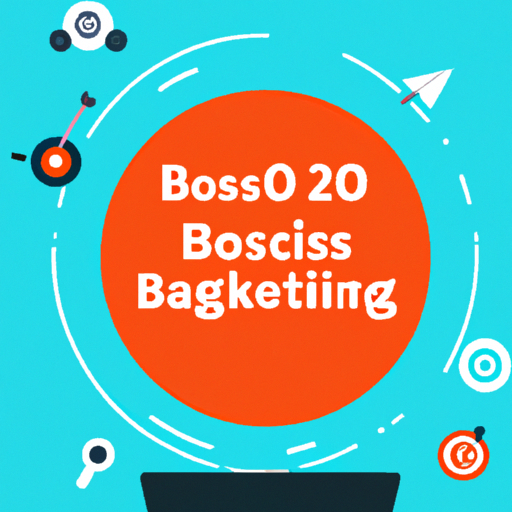Measuring Success: Key Metrics for Evaluating Your B2B SEO Efforts
Understanding the Importance of B2B SEO Metrics
Why Metrics Matter
In the dynamic world of B2B marketing, success is measured not just by efforts but by results. Effective Search Engine Optimization (SEO) is critical for increasing visibility, driving traffic, and generating leads. By focusing on metrics, businesses can make informed decisions that lead to improved ROI and productivity.
Key Metrics to Track in B2B SEO
1. Organic Traffic
Organic traffic refers to users who visit your site through unpaid search results. It showcases your website’s effectiveness at attracting potential customers.
- Monitor the volume of organic visits over time to assess growth.
- Analyze traffic sources to identify which search engines bring the most visitors.
2. Keyword Rankings
Tracking keyword rankings helps you understand how well your content is optimized. This metric indicates your visibility for targeted search queries.
- Focus on primary keywords relevant to your business.
- Monitor changes in keyword positions to adapt your strategy accordingly.
3. Conversion Rate
Conversion rate is the percentage of visitors who take a desired action, such as filling out a form or making a purchase. It directly affects ROI, making it crucial for SEO assessment.
- Evaluate conversion rates across different landing pages.
- Use A/B testing to optimize pages for better conversions.
4. Bounce Rate
The bounce rate indicates the percentage of visitors who leave your site after viewing only one page. A high bounce rate may signal issues with content relevance or user experience.
- Analyze bounce rates by page to identify underperforming content.
- Perform user experience audits to reduce bounce rates.
5. Time on Page
This metric measures how long visitors stay on a specific page before navigating away. Longer time on page often correlates with content quality and relevance.
- Evaluate the average time users spend on pages relevant to your business.
- Enhance content engagement through multimedia elements and interactive features.
Addressing Common B2B SEO Challenges with Algoboost.io
1. Content Creation and Optimization
Creating SEO-optimized content is one of the most significant challenges faced by B2B marketers. Algoboost.io simplifies this process by providing tools and resources designed to generate high-quality content that resonates with target audiences.
- Utilizes AI-driven insights for topic ideation and keyword targeting.
- Provides guidelines for optimizing existing content based on current trends.
2. Competitive Analysis
Understanding your competitors’ strategies can offer valuable insights for improvement. Algoboost.io includes features that allow users to conduct competitive analysis, enabling businesses to stay ahead.
- Customizable dashboards showcasing competitor performance on specific keywords.
- Actionable insights for refining your SEO strategies based on competitor successes and failures.
3. Technical SEO Issues
Technical issues such as slow loading times and mobile responsiveness can hinder SEO efforts. Algoboost.io helps identify and rectify these issues to enhance overall performance.
- Regular site audits to pinpoint technical deficiencies.
- Recommendations for optimization to improve crawlability and indexing.
4. Link Building
Effective link building is vital for improving domain authority and search rankings. Algoboost.io equips users with tools to create and manage a robust link-building strategy.
- Utilizes data-driven methodologies to identify potential backlink opportunities.
- Tracks link performance to measure their impact on SEO efforts.
Advanced Metrics to Consider
1. Customer Lifetime Value (CLV)
Understanding the value of a customer over their entire relationship with your business helps gauge the long-term success of your SEO efforts.
- Calculate CLV to better inform your SEO budget and resource allocation.
- Identify which keyword groups and sources yield the highest CLV.
2. Return on Investment (ROI)
Measuring ROI is essential for evaluating the overall effectiveness of your SEO strategy. This metric helps justify SEO expenditures based on quantifiable returns.
- Establish a clear link between SEO activities and revenue generation.
- Use ROI calculations to prioritize high-performing keywords and campaigns.
3. Lead Generation Metrics
In the B2B landscape, generating leads is paramount. Metrics like the number of leads generated through organic traffic help assess the success of your SEO efforts.
- Track lead sources to refine your SEO strategies accordingly.
- Measure the quality of leads generated through organic search.
Aligning SEO with Broader Business Goals
Integrating SEO with Overall Marketing Strategy
SEO should not function in isolation. Integrating SEO efforts with your overarching marketing strategy ensures cohesion and optimized results.
- Align SEO objectives with marketing goals to maximize effectiveness.
- Foster collaboration between SEO, content marketing, and social media teams.
Regular Reporting and Analysis
Consistent reporting on SEO performance allows businesses to identify trends and adjust strategies promptly. Algoboost.io offers comprehensive reporting tools for this purpose.
- Establish regular reporting schedules to review key metrics.
- Use insights gained from reports to inform future strategies.
Conclusion: Embracing a Metrics-Driven SEO Approach
Measuring success in B2B SEO goes beyond initial efforts; it requires a focus on key metrics that reflect performance and results. By leveraging tools like Algoboost.io, businesses can overcome common SEO challenges, optimize their strategies, and ultimately drive growth.
Ready to enhance your SEO results? Explore how Algoboost.io can transform your approach to B2B SEO today!






